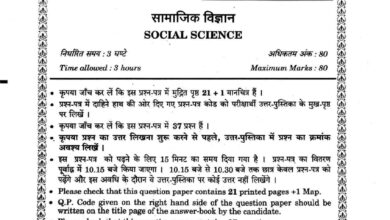Modi Government Cracks Down on Cheating: Anti-Cheating Bill Aims to Plug Paper Leakages
Prime Minister Narendra Modi’s government has taken a decisive step in combating the menace of cheating in exams with the introduction of a stringent anti-cheating bill in the Lok Sabha. This bold move seeks to address the rampant issue of paper leaks that have plagued India’s education system for far too long.
The bill proposes stiff penalties for those involved in cheating, including imprisonment of up to 10 years and a hefty fine of ₹1 crore. This strong stance sends a clear message that the government is no longer tolerating such malpractices. The bill also empowers authorities to conduct search operations, confiscate electronic devices, and intercept communications to gather evidence and prevent leaks.
But the bill goes beyond just punishment. It also focuses on prevention, proposing the establishment of a National Testing Agency (NTA) to conduct all entrance exams for higher education institutions. This centralized body aims to streamline the testing process and make it more secure. Additionally, the bill proposes stricter regulations for printing presses and exam centers to prevent leaks at their source.
This legislation has been met with mixed reactions. While many hail it as a necessary step to uphold the sanctity of examinations, others raise concerns about potential misuse and infringement on individual liberties. The opposition argues that the harsh penalties could unfairly target students and that the government should focus on improving the quality of education instead of resorting to stricter measures.
Despite the debate, the government’s intent to curb cheating is undeniable. Paper leaks have not only eroded public trust in the education system but have also created an uneven playing field for deserving students. This bill, if implemented effectively, has the potential to deter cheaters and restore faith in the fairness of examinations.
However, ensuring the bill’s effectiveness lies in its meticulous execution. Robust implementation mechanisms, transparent procedures, and due process safeguards are crucial to prevent misuse and ensure justice. Only then can this anti-cheating legislation truly serve its purpose of creating a level playing field and fostering a culture of academic integrity in India.





